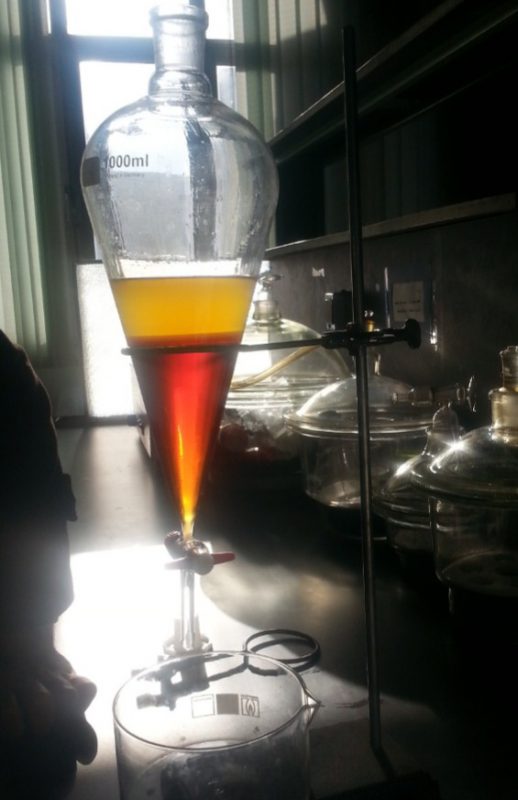Alborz Province- Meshkin Dasht ,Tel: 02636280040 , Fax: 02636201888,
WWW.merc.ac.ir , f-halek@merc.ac.ir
Ability: continuous biodiesel production
Biodiesel is a renewable energy source that is considered in last decades as an alternative for fossil fuels. Biodiesel is in fact, Methyl esters of fatty acids and hence transesterification of fatty acids is the main process for its production. However, biodiesel has two advantages as a fuel: renewability and less pollution emission. Also this fuel has a good ability to be mixed with gasoline and widely used in heavy vehicles without any modification in the existing engines.
In this study, an ultrasound assisted system was invented to continuous production of biodiesel from waste cooking oil (WCO). For this purpose, a glass helicoidal tube having a real length of 20m and formal length of 0.5m was made and applied as the reactor. The reactor was set in a water bath, the temperature of which has been controlled.
Using this system gave more opportunity to the oil and methanol to be mixed thoroughly and received ultrasound radiation at a minimum time, and consequently with a minimum cost.
By supplying raw materials and providing other conditions, this system makes it possible to produce biodiesel at an optimum rate of 0.6 liters per minute.
It should be noted that GC-Ms instrument was applied for detection of products. In this manner, standard methyl ester solutions were injected initially in order to create the library in the associated software.
Furthermore, the obtained product from this system satisfied biodiesel standards such as ASTM D6751. Also physical and chemical characteristics of final product were measured according to the ASTM standard methods.









Add comment